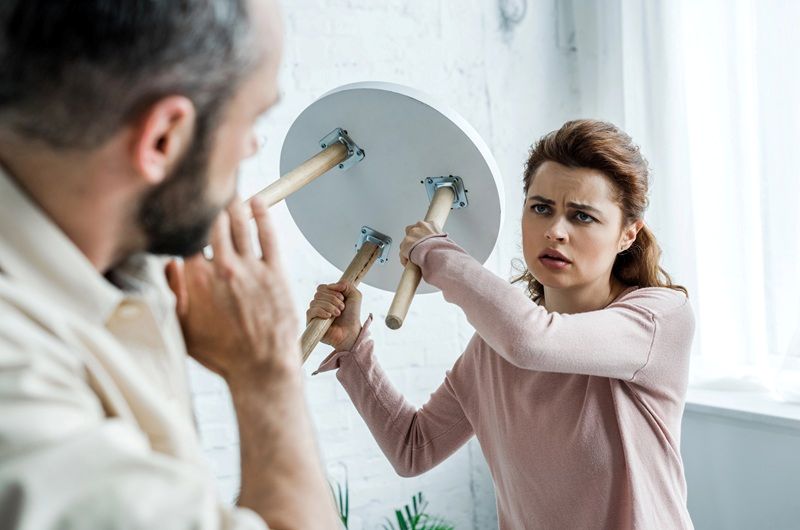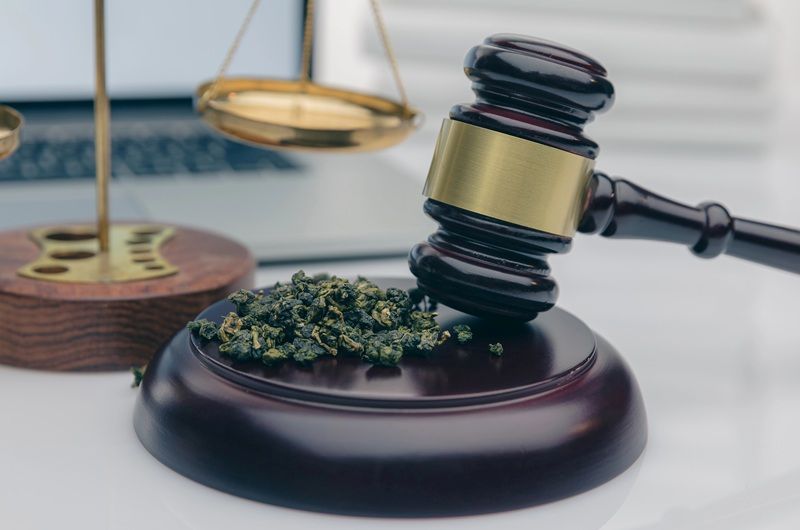Being accused of drug trafficking in Fairfax County, Virginia, is a serious matter that can change your life forever. The state enforces some of the strictest drug laws in the country, with harsh penalties for those convicted. Knowing your rights, the potential consequences, and the defense options available can make a significant difference in your case.
Drug-related charges often come with steep fines, lengthy prison sentences, and lasting damage to your reputation. In this article, learn about Virginia’s drug trafficking laws, the penalties you could face, and possible defense strategies. See how securing strong legal representation can help protect your future.
What Counts As Drug Trafficking In Virginia?
Virginia law defines drug trafficking as moving, selling, or producing illegal substances. The severity of the charge depends on the drug type and the amount involved. Larger quantities and certain substances lead to harsher penalties.
Drug laws can be confusing, especially when different substances carry vastly different penalties. Virginia categorizes drugs into schedules, primarily based on their potential for abuse and accepted medical use. Here are the categories:
- Schedule I drugs have a high risk of abuse and no medical use, including heroin and LSD.
- Schedule II substances are highly addictive but serve medical purposes, such as cocaine and methamphetamine.
- Schedule III drugs pose a lower risk of abuse and include anabolic steroids and ketamine.
- Schedule IV substances carry minimal addiction risks and include medications like Xanax and Valium.
- Schedule V drugs have the lowest abuse potential and include prescription cough syrups with codeine.
- Schedule VI substances include items not typically classified as drugs, such as inhalants and certain chemicals, which can still lead to abuse.
Virginia law makes it illegal to transport specific amounts of controlled substances into the state for distribution. Bringing in at least one ounce of cocaine or other Schedule I or II drugs, or five pounds of marijuana, can lead to felony charges. A conviction has harsh consequences, including mandatory prison time and substantial fines.
How Severe Are The Penalties Of A Conviction?
Virginia imposes some of the strictest drug trafficking penalties in the country. A conviction can mean years behind bars, massive fines, and lasting consequences that affect every part of your life. The exact punishment depends on factors like the type of drug, the amount involved, and any prior convictions.
Legal Consequences
Virginia law sets strict sentencing guidelines for drug trafficking offenses. A first offense carries a prison sentence ranging from 5 to 40 years, with a mandatory minimum of 3 years behind bars. Depending on the severity of the case, fines can reach up to $1,000,000.
The penalties for repeat offenders can increase significantly. A second conviction requires at least 10 years in prison, served consecutively with other sentences. The state can also seize assets linked to the crime, including cash, vehicles, and real estate.
Personal Impact
Beyond legal penalties, a drug trafficking conviction can derail a person’s future. A felony record makes finding employment, securing housing, or obtaining professional licenses challenging. Many landlords and employers refuse to work with individuals who have serious drug charges on their records.
A conviction also affects families emotionally. Loved ones often struggle with the financial burden of fines and legal fees, while personal relationships suffer from the stigma of a serious criminal charge. The long-term impact can follow a person for years, even after they serve their sentence.
Drug trafficking charges in Virginia carry more than just legal consequences they can permanently change your life. The combination of mandatory prison time, steep fines, and lasting personal challenges makes fighting these charges a top priority. Understanding what’s at stake is the first step in preparing a strong defense.
What Legal Defenses Can Help In A Trafficking Case?
A strong strategy can make all the difference when fighting drug trafficking charges. Prosecutors must prove key elements, such as possession, distribution intent, and proper evidence collection. Challenging these aspects can weaken their case and improve your chances. Below are some of the most effective legal defenses.
Lack Of Knowledge
To convict someone of drug trafficking, prosecutors must show that the person knew about the drugs in their possession. If you had no knowledge of the substance or no control over it, you can argue that you should not face charges. This defense often applies when officers find drugs in shared spaces, such as a vehicle or home.
Questioning Intent To Distribute
Possessing a controlled substance does not automatically mean you intend to sell it. Prosecutors often use circumstantial evidence, such as packaging materials or large amounts of cash, to suggest distribution. By challenging these assumptions and proving the drugs were for personal use, you may reduce or dismiss the charges.
Violations Of Legal Rights
Everyone accused of a crime has constitutional rights, including the right to remain silent and legal counsel. Officers who force a confession or deny access to an attorney violate those rights. Defense attorneys can challenge these violations and potentially get charges reduced or dismissed.
Fighting drug trafficking charges means examining every detail of the prosecution’s case and law enforcement actions. When a strong defense isn’t enough to avoid conviction, negotiating a plea deal may be the next option.
Can A Plea Deal Reduce Your Charge?
Plea deals can offer a way to reduce penalties in drug trafficking cases. Prosecutors may agree to lesser charges in exchange for a guilty plea. This option helps avoid the risks of trial, where a conviction could bring harsher consequences. However, accepting a plea deal means giving up the right to fight the charges in court.
Prosecutors usually offer plea deals when they have strong evidence but want to avoid a lengthy trial. Defendants with no prior convictions or minor roles in trafficking may receive better offers. In some cases, cooperation with law enforcement can lead to reduced charges. However, not all plea deals are fair, and some may still carry serious consequences.
Negotiating a plea deal requires careful strategy and legal knowledge. Defense attorneys review the prosecution’s evidence to determine if this is a good option. If weaknesses exist in the case, they may push for dismissal instead. If an agreement is necessary, they work to reduce jail time, fines, or long-term consequences.
Accepting a plea deal should never be a rushed decision. Defendants must understand the full impact of their choice before agreeing. A poorly negotiated deal can still result in years behind bars or a felony record. Information is vital, so answering common questions can help you make the most informed decision.
What Do People Ask Most About These Cases?
Drug trafficking charges come with serious consequences, leaving many people with urgent questions about their rights and legal options. Understanding how the law works can help you make informed decisions about your defense. Below are answers to some of the most common concerns.
Can A Small Amount Of Drugs Lead To Trafficking Charges?
While drug trafficking typically involves larger quantities, prosecutors can still pursue charges based on intent to distribute. Law enforcement may use factors like packaging materials, cash, or prior arrests to argue that you planned to sell. Even with a small amount, you could still face severe penalties.
Can Police Seize Your Property For A Trafficking Charge?
Virginia law allows law enforcement to seize assets linked to drug-related crimes, even before a conviction. This includes cash, vehicles, and real estate when officers claim they were involved in trafficking. Defendants must fight through legal actions to recover confiscated property.
How Can An Attorney Help With A Drug Trafficking Case?
A defense attorney can analyze the prosecution’s evidence, challenge illegal searches, and fight to reduce or dismiss charges. They can also negotiate plea deals to minimize penalties if going to trial can aggravate the case. Having legal representation improves your chances of securing a favorable outcome.
Drug trafficking cases are high-stakes, and even minor missteps can lead to life-changing consequences. Seeking legal representation as early as possible can help protect your rights and build a solid strategy.
What Can Fairfax County Criminal Attorneys Do To Protect You?
A criminal charge can put your entire future at risk. Fairfax County Criminal Attorneys knows how much is at stake, and we are here to help. Drug trafficking accusations bring severe penalties, but that doesn’t mean your case is hopeless. Our team fights to challenge weak evidence, expose legal violations, and negotiate for reduced charges whenever possible.
Every case is different, and we take the time to understand your situation before building a strong defense. Whether you need to fight for a dismissal, seek a plea deal, or prepare for trial, we stand by your side. You don’t have to go through this alone let us help you regain control of your future.
Drug trafficking charges in Virginia come with severe penalties, including prison time, heavy fines, and a lasting criminal record. A strong defense can challenge weak evidence, question law enforcement actions, and fight for reduced or dismissed charges. In some cases, plea negotiations can avoid the harshest consequences.
Every case is unique, and the proper legal strategy depends on the details. Legal representation can help protect rights and work toward a favorable resolution. Fairfax County Criminal Attorneys provides the guidance and defense needed to fight these accusations.






